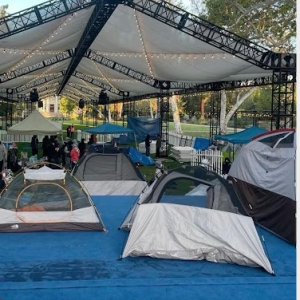 View Winners →
View Winners → 8 Helpful Tips to Learning New Languages


Learning another language not only enhances cognitive skills and boosts brain power, but has incredible career benefits. – Courtesy photo
By Sarah Wang
For most of us, learning a foreign language was a brief stint that we dutifully accomplished to graduate high school. But how much of that knowledge did we actually attain? Were there any other languages that we might’ve been interested in but didn’t have the time to pursue? Whether you’re fresh out of school or enjoying the retired life, learning is a lifelong adventure – one that most certainly applies to picking up new languages.
The benefits of learning a new language are numerous and incredibly useful. Pick any language at random, and not only will you be able to communicate with millions of other people than before, you’ll also unlock a whole new world of fascinating culture, art, food and ideas. Plus, there are mountains of scientific evidence backing the fact that multilingualism boosts brain power and greatly enhances cognitive functions, such as multitasking, improved memory, increased perception, better decision-making skills, greater resistance to diseases like Alzheimer’s and dementia, and mental flexibility. Being fluent in multiple languages doesn’t just open your world to new and exciting travel destinations, but it’s also a skill highly-coveted by employers around the world to keep up with our increasingly interconnected economy. If that’s not reason enough, the attention to the mechanics of language demonstrated by language students actually improves your English and makes you a more effective communicator. What else are you waiting for? Here are eight tips to getting started fast and picking up new languages like a pro:
- Interact With Native Speakers
What better way to learn a new skill than from people who practice it every day? Now, this doesn’t mean you have to book the next flight to France if you’re interested in learning French. Simply find a native speaker in your area, perhaps a friend or coworker, or connect with professional instructors online. If you’re looking to cut costs, many international language exchange partners are also willing to exchange teaching time in their language for equivalent time in English. By practicing on a daily basis with a partner, you can quickly explore the many nooks and crannies of new languages and build up the confidence to use it.
- Download Free Apps
In today’s day and age, the world’s vast collection of knowledge and resources are no farther than the tips of your fingers. Everything you need to get started can be found online, you just need the determination and dedication to use it. Online language courses such as Duolingo, Babbel, and Busuu are popular favorites and community forums like HelloTalk, HiNative, and TripLingo offer many free resources and valuable insight from fellow members. Once you get the basics down, apps like Memrise and Quizlet can really help with vocab memorization. All it takes is a quick search, so feel free to try out as many programs as you like until you find the right one for you.
- Join Online Forums and Educational Communities
The best way to learn a new language is using the experience of others. In this quest for higher education, you’re not alone! Join millions of other students and learn from their tips, advice, and help by signing up on sites like Linguaholic, LinguaLift, Language Exchange, and even Reddit.
- Change Your Language Settings
To fully immerse yourself in another language, you have to think like a native speaker. A great way to do this is to change your devices’ default language setting to the language of your choice. Start speaking to Siri or Alexa in that language and try to type with its new keyboard – if you get stuck, simply turn on predictive text for help.
- Set Specific Short-Term Goals
When it comes to learning languages, the objective is not to set big goals, but smart ones. No one knows your learning style better than yourself, so work out a realistic learning schedule that fits your pace and preferences. Before you start, ask yourself why you chose this language and what you would like to achieve. Perhaps a good guideline to goal-setting is the acronym “S.M.A.R.T.”: Specific, Measurable, Achievable, Result-Focused, and Time-Bound. For example, instead of setting a goal of “becoming fluent in Chinese in three months,” choose function-related goals like “ be able to order a coffee” or “be able to understand an episode without subtitles.” Consider the context in which you will most likely be using the language and set vocabulary goals relating to that setting, like learning food vocab to order in a restaurant or medical terminology to help at a doctor’s clinic. When making these goals, make sure to include smaller goals as well as big goals so you can enjoy mini-victories to keep you motivated. Don’t forget that fluency can take years to achieve — keep at it and you’ll be on your way!
- Attend Local Classes
Independent study isn’t for everyone and that’s completely fine. For those who prefer the feel of a traditional classroom and scheduled classes, local language classes are an excellent alternative. Many community colleges and universities also offer for-credit class options.
- Apply Spaced Learning (vs Massed Learning)
Most of us are all too familiar with the concept of massed learning as a means to digest huge amounts of information at one time. However, this method has proven time and time again to be ineffective in long-term information retention. While it may seem efficient, it is actually much more beneficial to absorb information through spaced learning.
In spaced learning, students are encouraged to study in small but frequent intervals of time. In doing so, they are essentially forcing the brain to retrieve that information over and over again, thereby establishing solid muscle memory and a consistent retrieval routine. Therefore, you can apply this practice to learning languages by taking it in a little bit at a time and frequently going back to review previous lessons in random order.
- Watch, Listen, and Read
Immersing yourself in a new culture is one of the most exciting perks of learning a new language. Actively engaging in various forms of media helps cultural outsiders pick up pronunciation, grammar, sayings and idioms, and other cultural customs, such as the Korean honorific system. While textbooks and courses are helpful, there is an extent to which they can build your language skills. Language is a part of culture and culture must be experienced, not taught. Dive into a whole new world of TV shows, dramas, songs, podcasts, and novels for the full cultural experience.
Now that you’re equipped with everything you need to learn a new language, use your newfound knowledge and get started! Buena suerte, 祝你成功, bonne chance, 화이팅 and good luck!












































































































